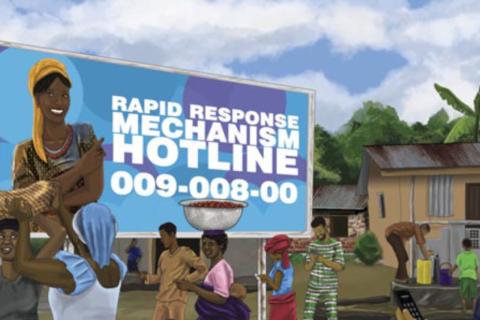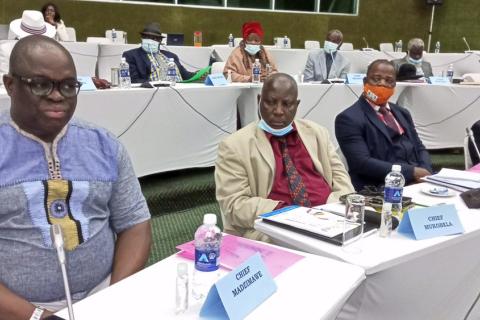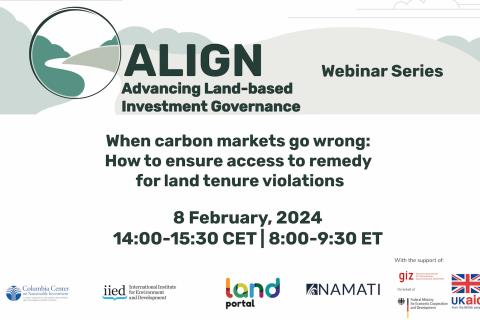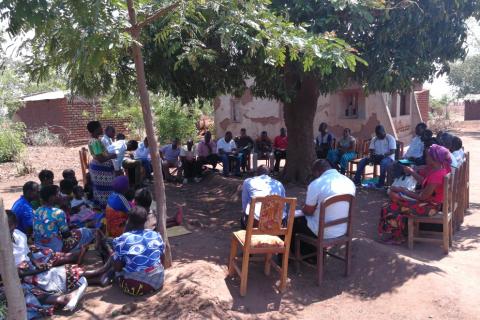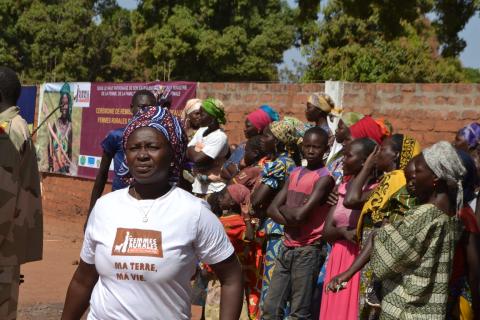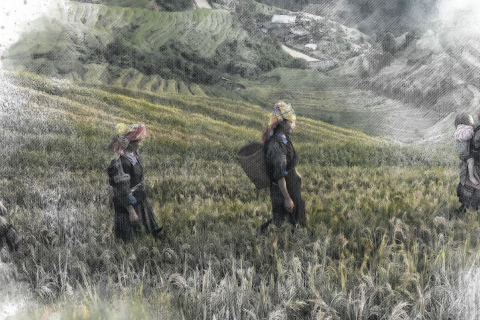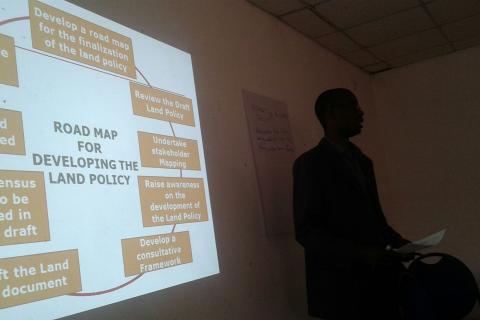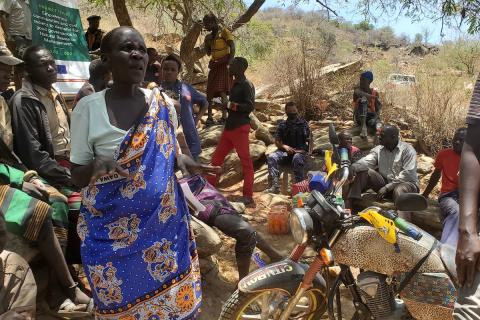Rapid response mechanisms: proactive legal support for communities
Rapid response mechanisms (RRMs) are a new, proactive legal approach designed to provide legal and technical support to communities facing nascent conflicts related to land-based investments. RRMs provide preventative rather than reactive legal help the moment a conflict arises or community members’ rights are threatened, rather than trying to reverse rights violations once they have already occurred.
Traditional authorities need a clearer role in land governance
Traditional authorities in Zambia complain that the government does not consult them when land is allocated for investment projects, while communities say chiefs are neglecting their interests. Jesinta Kunda of Zambia Land Alliance says more clarity is needed on the role of traditional authorities, in law and practice, to ensure large-scale investments in agriculture, mining and other sectors are governed better – particularly in light of the rising demand for critical minerals found in Zambia. She urges the government, traditional leaders and citizens to seize the opportunities presented by current legal reforms in Zambia to create change.
Mining contract transparency improves local planning in Mali
In Mali, a civil society coalition worked with communities to achieve greater transparency on gold mining contracts and to hold authorities and companies to account. Their aim: to turn Mali’s mining sector into a lever for socio-econmic development and improve living conditions around mining sites.
Nouhoum Diakite charts a success story, with limitations…
Webinar Recap : When carbon markets go wrong - How to ensure access to remedy for land tenure violations
This webinar, the fourth of the Advancing Land-based Investment Governance (ALIGN) series, took place on February 9th, 2024, under the title “When carbon markets go wrong: How to ensure access to remedy for land tenure violations”. The webinar drew in 562 participants and featured panelists from policy experts to community leaders. The webinar was jointly organized by the Land Portal Foundation, the International Institute for Environment and Development (IIED), Namati and the Columbia Center on Sustainable Development (CCSI).
Webinar Recap: Traditional Authorities in Africa and Their Role in Land-Based Investment Governance
In a thought-provoking webinar moderated by Nolundi Luwaya, Director of the Land and Accountability Research Centre at the University of Cape Town, experts from across Africa convened to unravel the complexities of the role of traditional authorities in land-based investment governance. This event brought to light the unique challenges and strategies employed by traditional authorities in managing land-based investments.
LAND-at-scale Chad: Collective action to bring land to the national political agenda
Chad is at the verge of an emerging land tenure crisis. As observed in many countries in Africa, formal and customary tenure systems overlap. Customary tenure systems, that generally prevail in rural areas, differ from region to region, with each its own needs and practices. Land conflicts are abundant, caused by degradation and transformation of land surfaces caused by climate change, as well as land investments by domestic investors with disputed legitimacy.
Why large-scale agricultural investments in Gambella, Ethiopia aren’t meeting expectations – and how to fix this
Despite being a part of national government planning, large-scale agricultural investments in Ethiopia have not been meeting expectations. Focusing on Gambella region in southwestern Ethiopia, this policy brief examines the reasons why, and proposes three policy actions to improve the situation.
Civil society organizations are key to creating better land policies: lessons from Zambia
In a blog series from IIED and the Land Portal, rights defenders and practitioners in the global South reflect on their strategies to push for more responsible and sustainable land-based investments. Here, guest blogger Jesinta Kunda describes how civil society organizations were key to improving Zambia’s first ever National Lands Policy.
Mining and Community Development Agreements: a panacea for community justice in Uganda?
Uganda’s extractives industry is growing exponentially and attracting both foreign and domestic mining companies. But too often, mineral-rich communities fail to benefit. Here, Kevin Bakulumpagi of ANARDE, Uganda discusses how Community Development Agreements can ensure affected communities both benefit from mining operations and are meaningfully engaged in agreements regulating mining activities
Webinar recap: The New Customary Land Rights Act in Sierra Leone
In September 2022, Sierra Leone enacted unprecedented new laws related to land, climate and sustainable development – the Customary Land Rights Act 2022 and the National Land Commission Act 2022. The webinar focused on the Customary Land Rights Act 2022, and its transformative power to support communities in protecting their land rights and pursue sustainable development.


